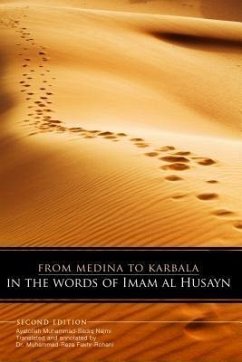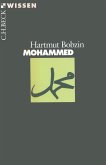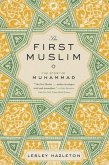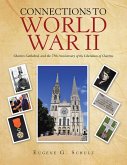Muhammad-Sadiq NajmiIn The Words of Imam al-Husayn
From Medina to Karbala (eBook, ePUB)
In The Words of Imam al-Husayn
Übersetzer: Fakhr-Rohani, Muhammad-Reza
4,99 €
4,99 €
inkl. MwSt.
Sofort per Download lieferbar

2 °P sammeln
4,99 €
Als Download kaufen

4,99 €
inkl. MwSt.
Sofort per Download lieferbar

2 °P sammeln
Jetzt verschenken
Alle Infos zum eBook verschenken
4,99 €
inkl. MwSt.
Sofort per Download lieferbar
Alle Infos zum eBook verschenken

2 °P sammeln
Muhammad-Sadiq NajmiIn The Words of Imam al-Husayn
From Medina to Karbala (eBook, ePUB)
In The Words of Imam al-Husayn
Übersetzer: Fakhr-Rohani, Muhammad-Reza
- Format: ePub
- Merkliste
- Auf die Merkliste
- Bewerten Bewerten
- Teilen
- Produkt teilen
- Produkterinnerung
- Produkterinnerung

Bitte loggen Sie sich zunächst in Ihr Kundenkonto ein oder registrieren Sie sich bei
bücher.de, um das eBook-Abo tolino select nutzen zu können.
Hier können Sie sich einloggen
Hier können Sie sich einloggen
Sie sind bereits eingeloggt. Klicken Sie auf 2. tolino select Abo, um fortzufahren.

Bitte loggen Sie sich zunächst in Ihr Kundenkonto ein oder registrieren Sie sich bei bücher.de, um das eBook-Abo tolino select nutzen zu können.
A complete collection of Imam al- Husayn's discourses, both oral and written, from his first conversation with al-Walid b. 'Utba, the governor of Medina and Marwan b. al-Hakam, to the last words to leave his blessed lips of the day of Ashura.
Find out the truth of Imam al- Husayn's mission in his own words
With the original Arabic text, colour maps of Imam al-Husayn's journey and a commentary on each discourse.
- Geräte: eReader
- mit Kopierschutz
- eBook Hilfe
- Größe: 1.27MB
Andere Kunden interessierten sich auch für
![Mohammed (eBook, ePUB) Mohammed (eBook, ePUB)]() Hartmut BobzinMohammed (eBook, ePUB)9,99 €
Hartmut BobzinMohammed (eBook, ePUB)9,99 €![From Queer To Christ (eBook, ePUB) From Queer To Christ (eBook, ePUB)]() George CarnealFrom Queer To Christ (eBook, ePUB)4,99 €
George CarnealFrom Queer To Christ (eBook, ePUB)4,99 €![The First Muslim (eBook, ePUB) The First Muslim (eBook, ePUB)]() Lesley HazletonThe First Muslim (eBook, ePUB)6,99 €
Lesley HazletonThe First Muslim (eBook, ePUB)6,99 €![Connections to World War Ii (eBook, ePUB) Connections to World War Ii (eBook, ePUB)]() Eugene G. SchulzConnections to World War Ii (eBook, ePUB)2,99 €
Eugene G. SchulzConnections to World War Ii (eBook, ePUB)2,99 €![I Didn't Sign Up For This (eBook, ePUB) I Didn't Sign Up For This (eBook, ePUB)]() Khadijah ShabazzI Didn't Sign Up For This (eBook, ePUB)4,99 €
Khadijah ShabazzI Didn't Sign Up For This (eBook, ePUB)4,99 €![FAITHWALK, , A Walk from Darkness to the LIGHT (eBook, ePUB) FAITHWALK, , A Walk from Darkness to the LIGHT (eBook, ePUB)]() Bonnie Lou OliverFAITHWALK, , A Walk from Darkness to the LIGHT (eBook, ePUB)3,99 €
Bonnie Lou OliverFAITHWALK, , A Walk from Darkness to the LIGHT (eBook, ePUB)3,99 €![Just Enough Light to Thrive (eBook, ePUB) Just Enough Light to Thrive (eBook, ePUB)]() Miriam Butler ConradJust Enough Light to Thrive (eBook, ePUB)11,95 €
Miriam Butler ConradJust Enough Light to Thrive (eBook, ePUB)11,95 €-
-
-
A complete collection of Imam al- Husayn's discourses, both oral and written, from his first conversation with al-Walid b. 'Utba, the governor of Medina and Marwan b. al-Hakam, to the last words to leave his blessed lips of the day of Ashura.
Find out the truth of Imam al- Husayn's mission in his own words
With the original Arabic text, colour maps of Imam al-Husayn's journey and a commentary on each discourse.
Find out the truth of Imam al- Husayn's mission in his own words
With the original Arabic text, colour maps of Imam al-Husayn's journey and a commentary on each discourse.
Dieser Download kann aus rechtlichen Gründen nur mit Rechnungsadresse in A, D ausgeliefert werden.
Produktdetails
- Produktdetails
- Verlag: Sun Behind The Cloud Publications Ltd
- Seitenzahl: 324
- Erscheinungstermin: 31. Dezember 2016
- Englisch
- ISBN-13: 9781908110343
- Artikelnr.: 49944593
- Verlag: Sun Behind The Cloud Publications Ltd
- Seitenzahl: 324
- Erscheinungstermin: 31. Dezember 2016
- Englisch
- ISBN-13: 9781908110343
- Artikelnr.: 49944593
- Herstellerkennzeichnung Die Herstellerinformationen sind derzeit nicht verfügbar.
The late Ayatollah MuÎammad-Sadiq Najmi was born in the village of Haris around Shabestar, Azerbaijan, Iran, in 1315 Sh/ 1936. His father, Hajj Mirza Ahmad Aqa Harisi, was a cleric in the same region. His mother was a cousin of the late Grand Ayatollah Sayyid Hujjat Kuhkamari. The late Ayatollah Najmi started his education when he was at the age of eight. After about seven years of studying at the local schools of his hometown, his father took him to Tabriz where he continued his education at Talebiyeh Madrasa. In the end of the summer of 1332 Sh/ 1953, he left Tabriz for Qom to pursue his higher education. His education was not limited to his study in Qom; whenever he found any opportunity, mainly in the summer holidays, he visited Mashhad to perform ziyÁra (pilgrimage) of ImÁm 'Ali al-RiÃa's Sacred Sanctuary and to benefit from the lessons offered at the madrasas there. In Mashhad, he made close relations with the late Ayatollah Hajj Sayyid Hadi Milani. During his studentship, he had several mentors and professors. Some of them include: Sheikh Ali-Akbar Ahari, Sheikh Abulfazl Ulamayi-Sarabi, Sheikh Abdullah Nurani, Sheikh Sa'ini-Zanjani, Ayatollah Dr. MuÎammad Mufatteh, Ayatollah Mortaza Mutahhari, Ayatollah Meshkini, Ayatollah Sobhani, Ayatollah MÙsawi-Ardabili, Ayatollah Soltani, Ayatollah Mujahedi, Ayatollah Zahedi-Qomi, Ayatollah Allama Sayyid MuÎammad-Husayn Tabatabaie, Ayatollah Khazali, Ayatollah Hasanzade-Amoli, Ayatollah Milani, Ayatollah Morteza Haeri, Ayatollah Golpayegani, Ayatollah Mohaqeq-Damad, and the late ImÁm Khomeini, the founder of the Islamic Republic of Iran. The late Ayatollah Najmi was both a prolific scholar and a social activist. His meeting with the late Ayatollah Allama 'Abd al-Husayn Amini, the author of al-Ghadir, in the village of Sharafkhaneh near the lake Urumiyeh, northwest Iran in the summer of 1350 Sh/ 1971, proved very insightful and full of inspiration. The late Ayatollah Najmi authored several books, mainly concerning Islamic history as well as the Qur'Án and hadith. He established the Islamic Azad University in Khoy in the 1364 Sh/ 1985 and was its rector for 16 years until 1380/ 2001. He received a letter from ImÁm Khomeini in 1360 Sh/ 1981 on the basis of which he was nominated as the leader of the Friday Prayer in the city of Khoy, West Azerbaijan. The late Ayatollah Najmi visited other countries for research purposes. He visited great libraries in Damascus, Syria; Istanbul, Turkey; and Mumbai, Lucknow, and Benares, India. In 1380 Sh/ 2002, the late Ayatollah Najmi decided to leave his posts and responsibilities to come back to Qom. In Qom he continued his scholastic pursuit for over ten years. During these years, he saw some of his works, including the present book, translated into several languages. The late Ayatollah Najmi had a heart attack in the late summer of 1390 Sh/ 2011. He breathed his last on 25 Shahrivar 1390/ 16 September 2011 and was buried at Qom. May his soul rest in peace! Amen!







